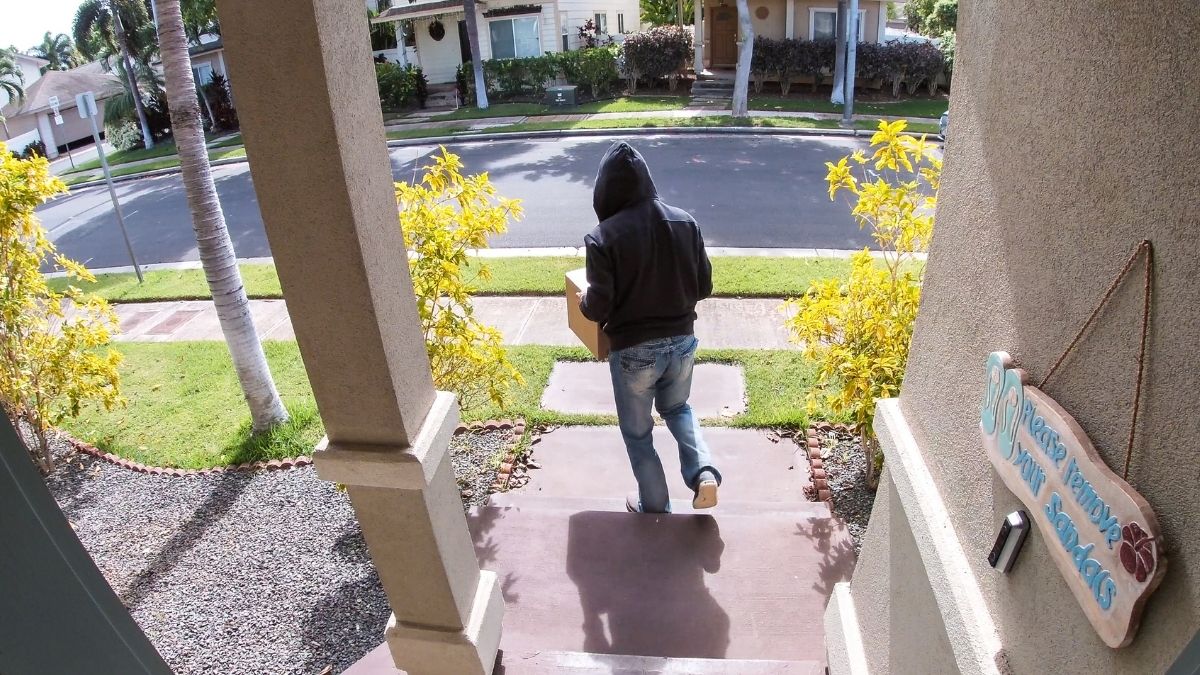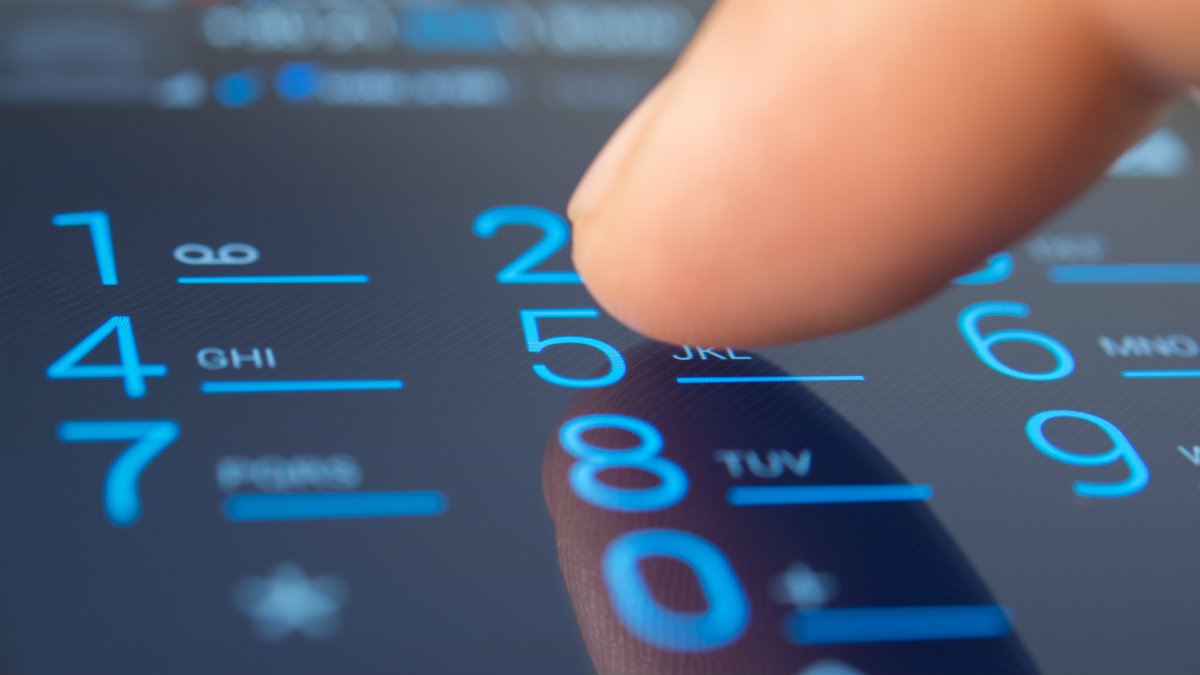Why are major airlines in a panic about AT&T and Verizon rolling out a new 5G wireless service? Listen now to find out.
Learn more about your ad choices. Visit megaphone.fm/adchoices

If you want to secure your home, video doorbells are a no-brainer. They’re a great way to get a little extra peace of mind. You can check in to ensure your front porch is safe if you’re at the office or the grocery store.
It’s no wonder this type of surveillance tech is all the rage these days. Video doorbells are easy to set up and use, but you shouldn’t skip essential security steps. Tap or click here to make the most out of your video doorbell and home security system.
When you’re shopping around for the best doorbell camera, two of the biggest brands are SimpliSafe and Amazon’s Ring. While both have a lot to offer, we found three great features that make our sponsor, SimpliSafe, stand out.
You’re usually not making a lifetime commitment from the jump when you buy home protection. If you’re not happy, you have a grace period to get your money back. But one company gives you more time for the warranty.
If you sign up for Ring, you have 30 days to change your mind. But if you sign up for SimpliSafe, you get a more generous grace period.
SimpliSafe offers a 60-day guarantee, so you have more time to find the correct setup. There’s less pressure to make a decision weighing down your shoulders. It’s just another way to lessen the stress of home security.
SimpliSafe offers a long warranty as well, 3 years compared to Ring’s 1-year warranty.
Outfitting your home with a home security kit means going beyond just a doorbell. More than likely, you’ll add on some cameras and sensors, too. Both companies offer packages. Amazon’s Ring Alarm kits come with up to 14 pieces. But SimpliSafe’s Build My System feature offers more flexibility to find exactly what you need for your home.
This option lets you create a custom package to fit your specific needs. You can mix and match these products:
| Entry sensors | Motion sensors | SimpliCam | Glassbreak sensor |
| Panic button | Smoke detector | Carbon monoxide sensor | Temperature sensor |
| Water sensor | Extra keypad | Key fob | Extra 105 dB Siren |

Think about all the subscriptions you’re signed up for. Do you use all of them enough to warrant the expense? That’s money automatically being taken out of your account every month or year.
Some of your subscriptions may have started as free trials but are no longer free. Then there are apps you pay for that can be substituted for ones that don’t cost anything to use. Tap or click here for five mistakes you’re making that cost you money.
Why are major airlines in a panic about AT&T and Verizon rolling out a new 5G wireless service? Listen now to find out.
Learn more about your ad choices. Visit megaphone.fm/adchoices

There’s no denying it: Money is tight for most of us. A new study from Civic Science shows 60% of Americans are “very concerned” about inflation — and there are no signs of price hikes stopping any time soon.

As sure as death and taxes, you can bet your bottom dollar that prices will increase for almost everything. As U.S. inflation topped a four-decade high in March, many companies are looking at price hikes to secure their bottom line.

Spam comes in various forms, with the most popular choice of criminals being phishing emails and text messages. Unsolicited communication is usually easy to spot as the number won’t be in your contacts. Tap or click here to stop junk text messages and spam for good.

Every cybersecurity threat has the potential to snowball into an avalanche of issues — but some are more dangerous from the jump. Experts say you should watch out for impending cyberattacks, thanks to the Russia-Ukraine war. SIM swapping is an especially dire threat since it takes over your smartphone, rendering it useless.

Your privacy is at risk as long as you have a connection to the internet and online accounts. Though your actions have a big impact on how much others can find out about you, there are some things beyond your control.

Your smartphone is capable of more than you think, and your carrier knows how to unlock all of its secrets by pressing just a few buttons. These codes, called Unstructured Supplementary Service Data (USSD), can be used to scan networks and activate service right from your phone’s dialer.
If you answer the phone when an unknown number calls, robots probably love you. Nowadays, when you answer the phone, it’s likely a robocall spammer. They have a ton of nasty tricks up their sleeve, from posing as a member of the IRS to lying about your car’s warranty.

Verizon customers are having a bad week. Many have been receiving texts claiming to be from the company, thanking them for paying their bills. The message includes a link supposedly offering a little gift. Of course, it’s actually a scam looking to rip them off. Tap or click here for complete details.

Scams can come in many forms, and we need to watch out for all of them. Phishing emails and malicious links found in online search results are just a couple of examples. Now we need to add deceitful text messages to the list. Tap or click here to see six dangerous texting scams making the rounds.

Targeting large groups of people through phishing or email spam is a typical way cybercriminals make money. But some step it up a notch and go after large databases containing millions of user records.
In the last decade, plenty of companies have fallen victim to meticulously planned attacks. Hackers sometimes get access to millions of personal information files. They use the stolen data to rip people off by committing identity fraud and numerous other nefarious acts.
Here’s a true story of a real crime and a real victim. An Arizona woman received a call on her smartphone from someone claiming to be a Verizon employee … and it all went downhill from there.
Learn more about your ad choices. Visit megaphone.fm/adchoices

Teens today will probably never understand the world of rotary phones. It would be hard to explain that you had to know a phone number by heart and then dial it by spinning a circle back and forth. Thankfully, those phones are nowhere to be seen now. But the humble landline is still in use.
All telephone providers – AT&T, Verizon, T-Mobile, Comcast, Cox and all the others – have until the end of today to implement new technology that fights fraudulent calls. Here’s the full story.
Learn more about your ad choices. Visit megaphone.fm/adchoices
The pandemic has moved many of our lives online. Some of us have been lucky enough to stay safe by working from home during these strange times. But we don’t log off when the shift is over.
We then turn to Netflix or whatever your streaming service of choice is to stay entertained. All this online activity has probably put your internet connection front and center. If you’re not getting the speeds that you’re paying for, that’s a problem. Tap or click here to report slow internet to the FCC.
Smartphones have made the internet even more widespread than before their advent. Now we are connected 24/7. Many of us need the internet for our jobs as well.
What happens when you don’t have a signal or an open hotspot? You bring one with you, of course! Thanks to mobile hotspots, we can now be connected to our social media and email wherever we go. Tap or click here to find out how to set up a mobile hotspot.

How shocked would you be if an unsightly metal utility box popped up on your front lawn — seemingly overnight? These boxes are not part of an elaborate inter-state art project and have nothing to do with the mysterious monoliths.

When you signed up for home internet service, you had to choose from several options. Each plan promises certain download and upload speeds, but how do you know which one is right for you?
Those speeds are a big factor in how much you’ll shell out for the internet each month. Faster capabilities mean higher costs and you’ll pay less for slower speeds. But speed is just one factor when it comes to your internet bill. There are others you might not know about. Tap or click here to change this one setting for faster internet speeds.